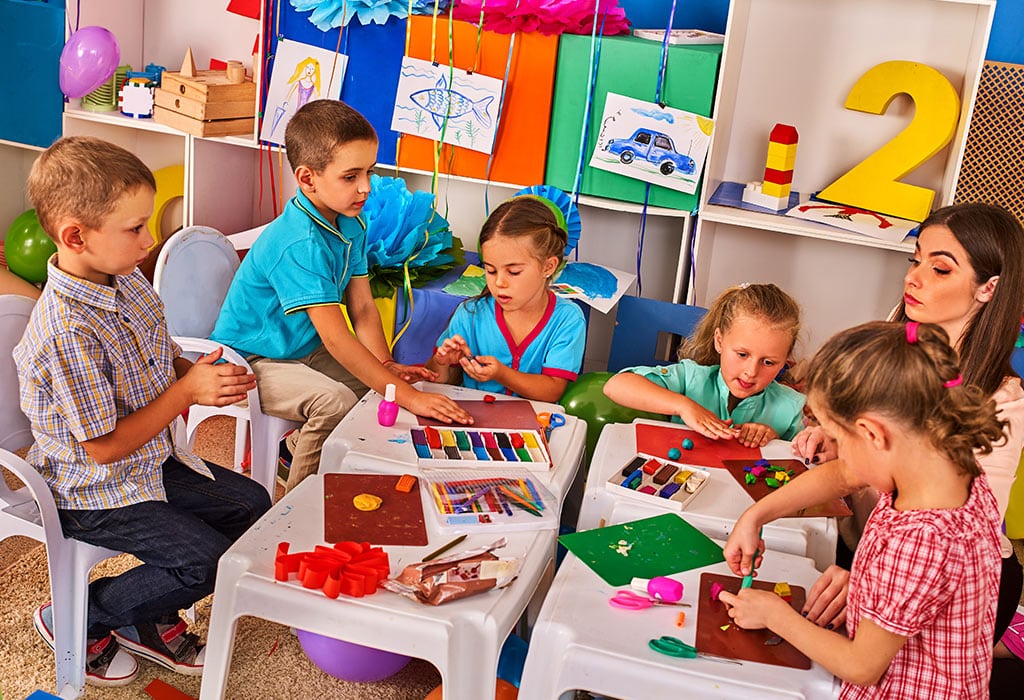5 Year Old Not Adjusting to Kindergarten
Most of us know how significant kindergarten is for our children, but it is also a significant milestone for parents. Whether you’re a first-time kindergarten parent or on your last child’s way to kindergarten, the experience is equally exciting and nerve-wracking.
However, you will experience certain challenges as you get your child to adjust to kindergarten. Your child not adjusting to kindergarten is one of the most common challenges. In this article, we’ll go over the most prevalent causes of this and how to address them.
Factors That May Cause Your Child to Have Difficulties Adjusting to Kindergarten
Anxiety
Trying anything new can give anyone butterflies, but it could be more for a kindergarten child who is struggling. A school environment may contain experiences that your child has never had before. Furthermore, it’s not uncommon for a 5-year-old to experience separation anxiety. Separation anxiety can emerge in full force when it’s time to leave mummy and daddy every morning.
If your child has a headache, an upset stomach, or even constipation frequently, these could be anxiety symptoms. However, because it’s difficult to identify whether the symptoms are due to an impending illness or simply mental distress, start by treating them medically. Examine your child’s food and sleeping habits. Also, visit a pediatrician for a check-up.
If it turns out that your child is experiencing anxiety, the first thing you should do is reassure them that this new journey will be fantastic. Another thing you can do to help them cope with their school anxiousness is to divert their attention away from their morning routine. Singing songs and handing them their favorite snack on the way to school are simple ways to accomplish this.
Losing Self Confidence
After years of being at home with a supportive mother and father who go gaga over everything they do, your little one may encounter a different reality at school.
The child might not always be the best in the group at certain activities at school. As a result, they may begin to compare themselves to children who are superior to them in some way, and they might notice for the first time that they do things differently than others. This might be hard for a child to process.
To assist your child in this, make sure they understand that it’s fine not to be perfect at everything. You may also try establishing daily routines that your child can succeed with on a daily basis to help them gain confidence.
Being Frustrated with Sports or Group Activities
Again, this is an area where you may have unconsciously modified your life to your child’s demands. Perhaps you find yourself bringing items closer to your child so that they can reach them more easily and with less effort. Perhaps you’ve been assisting your child in dressing and undressing because it takes them too long, and you don’t have time to wait.
Any gaps in physical development may become more apparent in a group situation, such as team activities and sports at school. Such a significant disparity will almost certainly cause a child to struggle in kindergarten. A sensitive child will notice these changes immediately.
If your child usually enjoys playing ball at home but is sitting on the side-lines at school, it could be worth attempting some one-on-one sports time at home. Pay attention to any areas where your child may be having difficulty. If they have an issue with gross motor skills or hand-eye coordination in a high-distraction environment, some home workouts to overcome developmental gaps might be worth looking into.
Struggles with Speech
Another area where parents try to bend the rules for their children is communication. Remember that “toddler conversation” that seemed to be understood only by you? Maybe your child says something no one else understands, but you know exactly what it means.
When your child enters kindergarten, they may notice that their speech pattern differs from their peers. This is likely to cause a child to struggle in kindergarten.
If your child is suffering in kindergarten due to communication issues, their teacher will likely bring it up. Talk to an occupational therapist if their teacher doesn’t have any specific suggestions to aid with your child’s communication issues.
Potty Time Issues
Toileting will be tough at school if your child has difficulty with fine motor skills or coordination.
Is it possible that your child is unable to rapidly undress in the midst of the school day’s excitement? If this is the case, they may begin to wet themselves in unusual ways.
It’s never too early to begin practicing a patient and peaceful self-toileting practice at home. This ensures that the little one can operate the buttons and zippers on their school uniform.
Other Frequently Asked Questions
How Long Does It Take For a Child to Adjust to Kindergarten?
The time it takes for children to adjust to kindergarten varies depending on their personality, but most children will adjust within the first few days and should be comfortable with their routines within a few weeks.
What are Some of the Signs That Show That Your Child is Adjusting to Kindergarten?
If your child is no longer upset when it’s time to leave for school in the morning, it is an indication that they are adjusting to kindergarten. Another indicator that your child has adjusted to kindergarten is when they enter a classroom and know exactly what they need to do when they get there, such as hanging their bag, putting their water bottle away, and finding a spot on the carpet.
Conclusion
Kindergarten is a significant milestone in the lives of both children and their parents. This step, however, comes with its own set of obstacles, such as your 5-year-old not adjusting to kindergarten. We hope that this post has shed some light on some of the reasons your five-year-old is not adjusting to kindergarten and some potential remedies.






